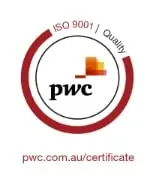7 tips for Management System Internal Auditors when starting out
Published on: April 24, 2023
As a Management System Internal Auditor, starting out can be both exciting and daunting. You may find yourself faced with new challenges and responsibilities as you navigate the world of auditing. But fear not! In this blog, we’ve got you covered with 7 essential tips to help you kickstart your career as a Management System Internal Auditor with confidence.
Have you completed training to become a Management System Internal Auditor, but are yet to actually conduct an Internal Audit on your own? If you answered yes, you’re not alone, as many new auditors struggle to initiate the process.
After speaking with some of our students, we found that the main struggle with getting started is due to a lack of confidence, feeling the need to gain more experience, or uncertainty about where to begin. To assist you in starting, we have 7 straightforward tips that can assist you in breaking down what appears to be a challenging task, into more manageable steps.
Let’s get into it:
1. Know the ISO Management System Standards you’re auditing against
Before conducting Internal Audits, it’s important to familiarise yourself with the relevant ISO Management System Standard(s). This includes reading and interpreting the standard’s requirements, understanding the scope and purpose of the standard’s clauses, and familiarising yourself with the key terms and definitions used in the standard. Knowing the ISO Standards you are auditing against is crucial for ensuring conformance, enhancing credibility, maintaining consistency, delivering value-added audits, and promoting your knowledge and professionalism.
Listed below are the four main ISO Management System Standards:
2. Develop an Audit Plan

3. Take a Process Approach
The ISO Management System Standards require that audits are conducted against the organisation’s own processes, as well as against the requirements of the relevant ISO Standard(s). It’s vital to use a structured process to conduct the Internal Audit, and auditing via the organisation’s processes (with references back to the related clauses of the standard(s)) ensures a meaningful process which facilitates continual improvement. This approach ensures that the audit is comprehensive and that all relevant areas are covered.
4. Communicate effectively
As an Internal Auditor, effective communication is key. You need to communicate with auditees, sometimes other auditors, and other stakeholders throughout the audit process. Be clear, concise, and objective in your communication. Ask open-ended questions to gather relevant information, listen actively to understand the auditee’s perspective, and provide feedback in a professional and constructive manner.
5. Be Objective and Unbiased
Internal Audits should be objective and thorough, and not just a box-ticking exercise. To maintain objectivity, it’s best to audit an area of the organisation in which you are not directly involved. As an auditor, you should be rigorous in your assessment and provide evidence-based analysis and feedback. Be sure to document all findings, including any non-conformances, observations, and opportunities for improvement.
6. Use effective audit techniques

7. Continually improve your skills
Internal Auditing is a continual learning process. Seek feedback from auditees and colleagues to improve your auditing skills. Stay updated with the latest changes in the ISO Management System Standards and best practices in Internal Auditing. It’s important to strive to enhance your knowledge, skills, and competence as an Internal Auditor.
As businesses are constantly looking for ways to improve, being a certified competent Internal Auditor can expand your professional options – not only to perform them within your current role but also to pursue an independent career.
Our Management System Internal Auditor Training is a practical eLearning course that teaches how to conduct effective Internal Audits of the main ISO Management System Standards in accordance with ISO 19011:2018. With our course, you can achieve three levels of internationally recognised certificates, giving you the skills and tools you will need to perform effective Internal Audits.
Erica is the Managing Director of ISO Certification Experts and ICExperts Academy. She has been helping businesses with their ISO Certification needs for over 20 years. Erica is also a Certified trainer, implementer and auditor for ISO 9001, ISO 14001, ISO 45001 and ISO 27001 standards. Erica primarily heads up the day-to-day operations of the businesses, and is also a current member of the Australian Organisation for Quality and Brand Integrity Committee.
All information on this blog site is for informational purposes only. As this information is based on our professional experience, opinion, and knowledge, we make no representations as to the suitability of this information for your individual business circumstances. Especiality Pty Ltd trading as ICExperts Academy and all related businesses and brands will not be liable for any errors, omissions, legal disputes or any damage arising from its display or use. All information is provided as is, with no warranties and confers no rights.
We will not be responsible for any material that is found at the end of links that we may post on this blog site. The advice, ideas, and strategies should never be used without first assessing your own personal business situation or seeking professional and/or legal advice. Information may also change from time to time to suit industry and business needs, requirements and trends.



















